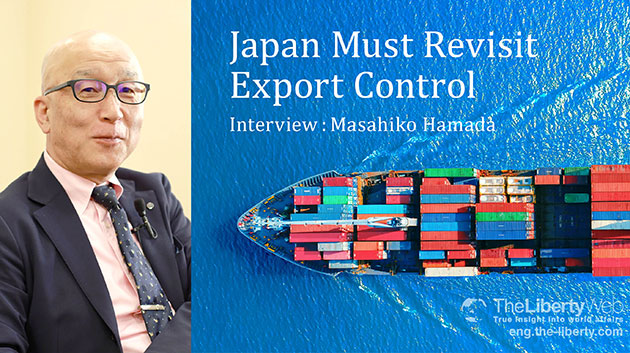Japan Must Revisit Export Control
Interview
Japan Must Revisit Export Control
We spoke to a former senior self-defense force officer and a chemical weapons expert, who dealt with the subway sarin attack among other incidents, about circumstances surrounding China’s inspection interference.
Former Vice Principal of GSDF’s Chemical School
Masahiko Hamada
Born in Japan’s Yamaguchi prefecture in 1956. He contributed to the field of chemistry for 30 years since joining the Japan Ground Self-Defense Force in 1980. He has authored “Prepare for the Greatest Threat, CBRM!” (Note: English translation not available).
I believe the coronavirus was artificially manipulated to infect humans, and those infected during their research spread the virus from a nearby hospital.
China Interferes With Inspection System
China is seemingly cooperative with inspection measures led by the Organisation for the Prohibition of Chemical Weapons (OPCW), but their essence is slightly different.
There are two types of inspections: a routine inspection and a challenge inspection. Routine inspections are only conducted on specific claims by concerned countries, so any other activities will not be revealed. On the other hand, while the challenge inspection is supposed to be a spontaneous inspection, China and Russia threatened to demand monetary compensation if people could not find out about the manufacture of chemical weapons as a result of the inspection.
Furthermore, we don’t have any international enforcement agency to address biological weapons, which are more for both military and civilian use compared to chemical weapons.
For example, North Korea has a huge device for exterminating harmful insects. If you look closely, you’ll see that it’s a device that produces anthrax in large quantities, but North Korea insists it’s a device for pesticides. Since China plays a teacher-like role for North Korea, China should have similar abilities.
Japan’s Technology Leaks
What is worrisome is the possibility that Japan’s outstanding technology may be diverted for military use to enhance the performance of China’s biological weapons. Japan’s top-notch technology for microencapsulation, known as the “spray dryer,” seals small capsules without changing the nature of the material. In Japan, it is used to manufacture pharmaceuticals and aircraft engines, as well as to maintain the aroma of softeners; when used for biological weapons, however, aerosol biological weapons floating in the air can be manufactured. This will allow the spread of germs and viruses over a wide area.
A Japanese company exporting this technology to China was put on house search two years ago and arrested on March 11 of this year for violating the foreign exchange law. Japanese technology could have been used as a weapon to kill its own people in the future. Japan must keep its guard on China’s biochemical weapons to prevent such nightmares.



















